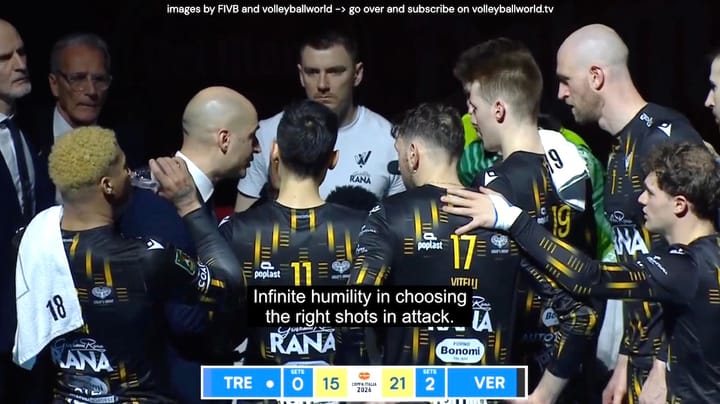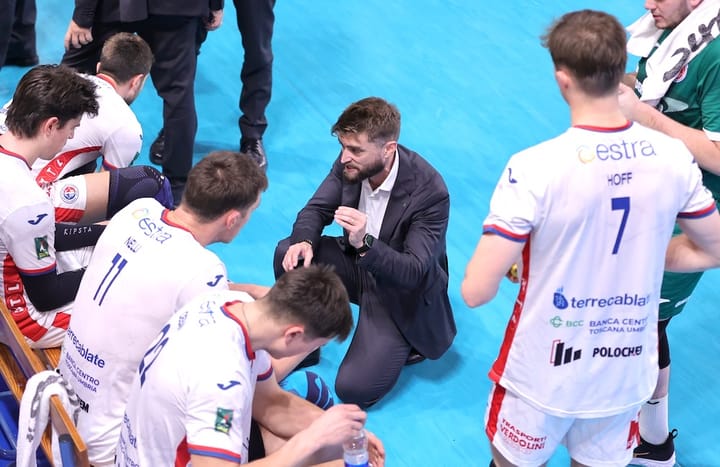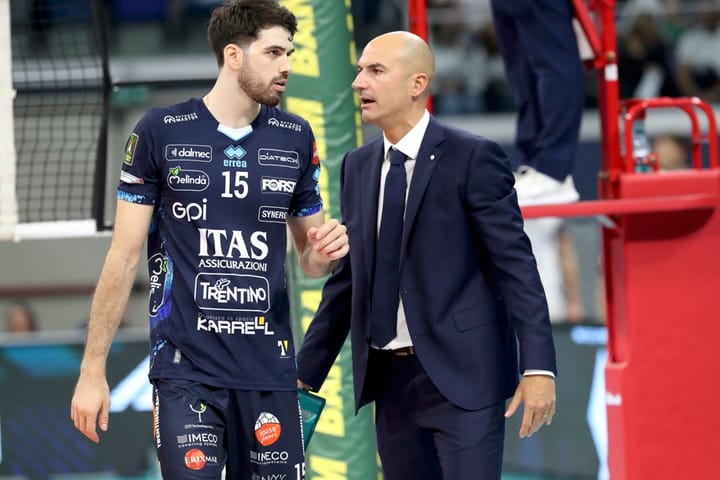96. Angelo Lorenzetti: We are at their service.
Angelo Lorenzetti is the head coach of Sir Sicoma Monini Perugia and one of the most respected volleyball minds in the world.
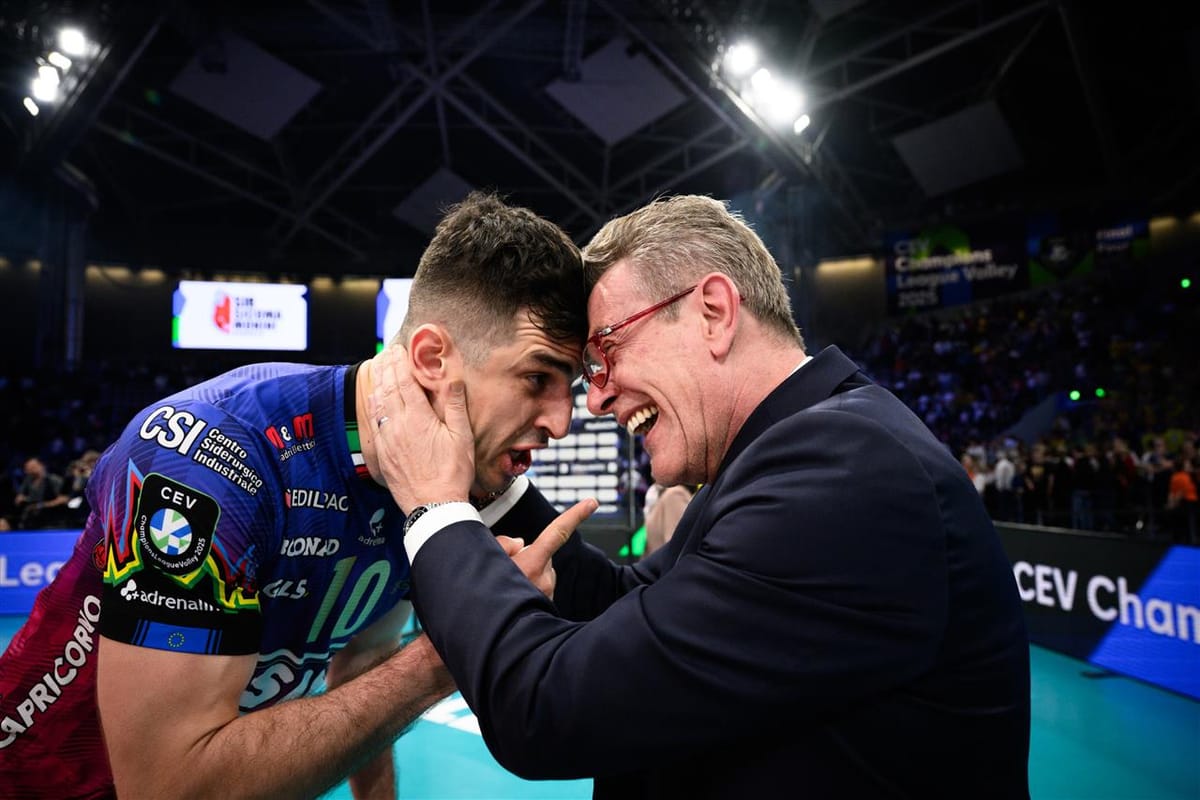
Angelo Lorenzetti’s coaching journey spans over three decades, marked by a relentless pursuit of excellence and a profound impact on the teams he leads.
From his early days nurturing talent in Fano and Italy's youth national teams, to coaching the world's top pro teams and global volleyball stars, Angelo has continuously combined a deep knowledge of the game with a strong commitment to helping players grow.
Angelo's leadership and tactical brilliance has brought success to top Italian clubs, including Modena, Piacenza, Trentino, and currently, Sir Sicoma Monini Perugia.
In May 2025, Lorenzetti achieved a career milestone by guiding Perugia to their first-ever CEV Champions League title, a testament to his strategic acumen and ability to inspire peak performance under pressure.
In this conversation, one of volleyball's most thoughtful coaches shares the principles that have shaped his decades-long career. Insights that extend far beyond the court.
Angelo Lorenzetti doesn't just coach volleyball; he architects cultures where people can become their best selves.
What You'll Discover:
- How to recognize perfectionism as a performance inhibitor, not a virtue.
- A framework for managing the 48 hours before competition to sharpen focus and align energy.
- Why a gym must function as a place of identity—not a transactional, "non-place."
- The three structural pillars that make delegation meaningful: competence, reliability, and sincerity.
- Why rules alone fail—and how enduring principles create sustainable team cultures.
- How civic values—awareness, responsibility, respect, and commitment—translate into elite performance environments.
- Why real dialogue requires preparation, presence, and a shared willingness to engage in discomfort.
- How to create a psychologically safe space where mistakes fuel growth rather than fear.
- Why inherited narratives like “we are the strongest team” can undermine adaptability and competitive edge.
- A case for rethinking volleyball’s scoring model to deepen engagement and competitive fairness.
- How consistency, availability, and intentional presence quietly shape elite team dynamics.
- and so much more...
There are 52 minutes of edited video with 11 clips in this Masterclass.
Enjoy!
Coach Lorenzetti was one of VolleyBrains' earliest and most enthusiastic contributors, sharing his insights in a written interview back in February 2021. In this interview, we'll also revisit some of his reflections from four years ago and explore if his philosophies have evolved since then.
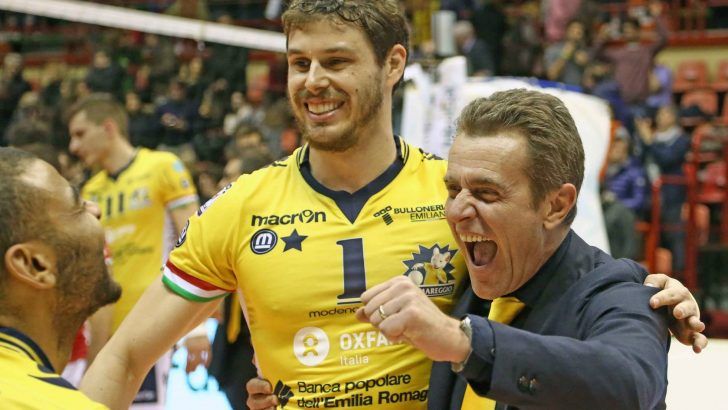
Still, we strongly recommend watching the videos to feel the rhythm and emotion, but turn on YouTube’s English auto-subtitles, which are rapidly improving with AI. This will get you as close to the results that we could've created.
Matias:
Last time we spoke, I asked you what advice you would give your younger self at the beginning of your coaching career.
And your answer was beautiful. You said, "Dear Angelo, remember that the players are the stars of the show. You’re there to serve them. Your job is to help them bring out the best in themselves." You went straight to the core of it.
Could you share a moment in your career when you forgot about the essence of that answer—maybe because of the stress of a match or the pressure to perform? Or maybe a better question is: what do you do when you realize you've lost sight of that?
Angelo:
Yeah, that’s a good question. I won’t claim to be perfect in living up to that principle, but honestly, I can’t recall a specific moment when I completely betrayed it. It’s something I try to stay mindful of every single day—especially when tension rises or there’s potential conflict with a player.
I really make an effort to practice it daily. Maybe I’ve slipped once or twice, but what truly matters to me is that knowing the principle already means you’re actually living it. That’s the key.
Sure, I’ve had better results with some players and not-so-great results with others—but the question that always stays in front of me is: How do I make sure that this player is the lead actor in the story?
That mindset has become a kind of compass for me. Maybe there’s been a day where I lost track of it momentarily, but I can honestly say I’ve never abandoned it consistently. It’s a strong value—it’s the central principle of my work.
Matias:
So it’s something you really live with every day—it’s always present. Maybe I asked the question just to hear you say that again. 🙂 But it’s important. It sounds simple, right? It sounds like it should be easy to do. But if you don’t keep it front of mind, it slips away—and then you lose track of why you’re doing what you’re doing.
Matias:
Let’s talk about non-negotiable principles in team culture. In a volleyball team with just 12 athletes, when even one player changes, the team changes from the inside, right? So are there things—maybe not just “rules,” but certain conversations you have with players at the start of the season? Do you have fixed rules in place, or are you more the type who says, “Let’s see how things evolve”?
Angelo:
That’s a beautiful question. For me, it’s not just about how I am in the gym—it’s how I interpret civic life in general.
I’ll give you an example: when prisons are overcrowded, and statistics show that people often go back to jail after being released, it tells you something.
It tells you that rules by themselves don’t work.
Before we even talk about rules, I believe we have to talk about principles.
The principles are always the same, but the way we apply them can change depending on the group. For me, the core ones are:
- Awareness—It starts with asking, “Why am I here?” It’s like being at school and the teacher calls your name—you're declaring your presence, your purpose. "I’m here to learn."
- Responsibility—This is your ability to respond to questions that arise from being aware.
- Respect—And not just in terms of behavior, but really valuing what you did the day before. You respect today, and through today, you give value to what you built yesterday—whether it’s in training, in relationships, or anything else.
- Commitment—Which is self-explanatory but central.
These are civic principles, not just sports values. They belong in the locker room, on the court, and outside in everyday life. Rules, then, are just tools we use to express and uphold those principles.
In my teams, for example, it’s never explicitly written that you can't be late. But that’s obvious—because in regular life, if I have a meeting with someone, I don’t show up late. So it's not a sports rule—it’s basic respect.
That’s important, for professional athletes especially. Sometimes they think, “I live my life outside, and when I step into the gym, I do my job and that’s it.” But it doesn’t work like that—it’s all connected.
If you don’t live those principles in the gym, I think you'll struggle to live them outside too.
Now, that doesn't mean everyone always follows those civic “rules.” But if you work on the principles, you know those principles can be shaped and adapted. I’ve been coaching for decades—I’m 60 now—and I keep meeting new generations.
Take phones, for instance. In volleyball teams, phones have always been a mess. You’re not supposed to have them at the table, not here, not there. But today? Phones are part of our lives. Some coaches still ban them completely. I prefer to go with common sense. When you’re at dinner with your wife and kids, you don’t scroll through your phone unless it’s something urgent. That’s the idea I try to bring into our team too.
Last 2 points of the Champions League win!
So no, it’s not that rules aren’t important. Every structure needs rules. But the problem is that the usual approach to rules is punishment.
We see it in society too—especially in Italy now. Something happens, and the immediate reaction is: new rule, punishment, punishment, punishment.
Instead, I believe things should be explained first. Whether it’s citizens or players, they need to understand why a rule exists.
A rule should help you fulfill a principle. That’s where its value comes from.
Yes, it’s a longer process. It would be easier to just hand out a sheet of rules at the start of the season. But that’s not how I work.
Matias:
I think you’ve already answered my next four questions. I love it. Let me take a look now…
Matias:
So, how do you build a culture where players really take ownership of the team’s success? We’ve touched on this already, right? But it feels like it’s part of something bigger.
Angelo:
Yes, it’s tied to the whole discussion around expectations, you know?
This is actually one of the first conversations I always have with the team—about roles.
Because, let’s be honest, the world of volleyball isn’t always that professional. Many times, as a coach, you walk into a team where you're not necessarily the one who selected the players. Maybe you haven’t even spoken to them before. Sometimes it’s someone from the club, a director, who’s had the conversation with them—and maybe they painted a bit of an ideal picture.
So yeah, on this point I’m very clear. I’m determined. Because I believe that every structure—not just a sports team—rests on two key things:
Respect for roles, and productive conflict.
Now, when we talk about roles, we have to understand what that really means. It's not just a label. It’s a broad concept, but inside that concept are expectations—the player’s expectations of himself, what his teammates expect of him, what I as the coach expect, and what he expects from his coach and teammates in return.
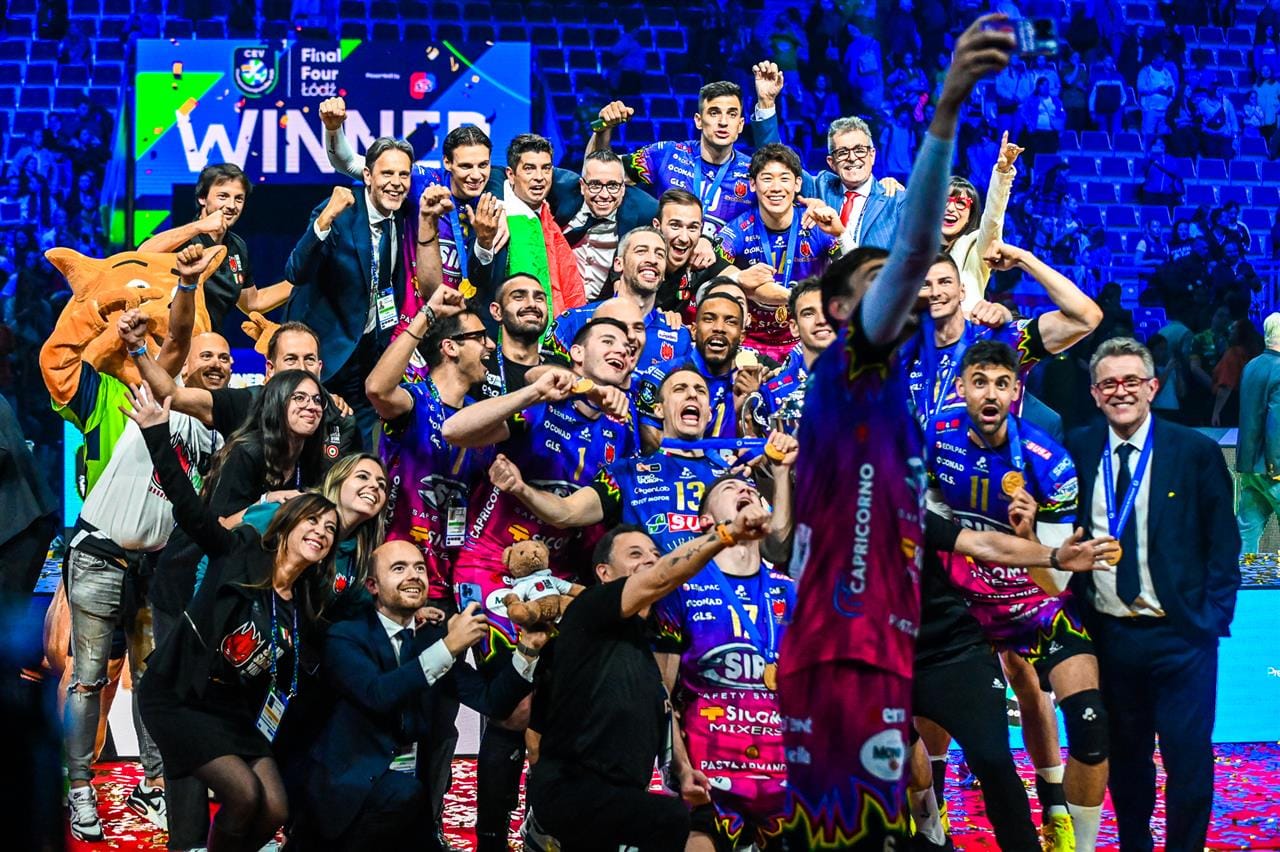
And these expectations? They change every time someone enters a new team environment. That’s why it’s so important to make them explicit.
Because if you don’t, each person starts to construct their own version of reality. They show up thinking things are one way, but reality might be another. And that’s where a gap forms—a misalignment. And to fill that gap, what usually happens? People start to complain. It’s natural.
So one of the first things I make clear is: Who is a starter, and who isn’t?
What does it mean to be a starter? What does it mean to be a backup? Are you a backup who’s close to the starters or one who’s far from them?
That’s something I always clarify right away. If there’s uncertainty, I'll make it clear. But I don’t say something like, “You’re all starters.” If I’ve got three outside hitters and I’m still figuring things out, I’ll say: “None of you is a starter right now.” Because being a starter is something you have to earn.

